- Home
- Philip Pullman
I Was a Rat! Page 7
I Was a Rat! Read online
Page 7
“More of you, are there?” said the policeman. “Like rats in a trap.”
And he blew his whistle. That was enough for Roger. If the man spoke of rats, he must be the Sterminator, and the whistle must be his horrifying apparatus starting up. For all his loyalty to Billy, and despite his waterlogged stomach, the little boy turned and fled into the dark.
He didn’t know where he was going. He couldn’t remember the way back to the cellar, and even if he could, he didn’t dare go there. In fact, everything in his world was soaked in guilt and misery. He had wanted to be a good boy, but it seemed that whatever he did, he was a bad one. He didn’t deserve a nice dry place to curl up and sleep; he didn’t even deserve to whisper Bob and Joan—bread and milk—nightshirt—privy—patients as he used to do. Somehow the words didn’t want to come to his mouth. He just moved his lips and tried to hear the little puffs and clicks and hisses they made and pretended he could make out the words.
So he crept through the dark streets until he came to a grating in the gutter, like a proper rathole, only human-sized. If he went down there, he wouldn’t have to bother anyone and he wouldn’t do anything wrong. He could stop trying to be a boy and go back to being a rat. “Once a rat, always a rat,” Billy had told him, and it must be true, because he certainly wasn’t any good at being a boy.
So he lifted the grating and slipped down into the dark.
THE DAILY SCOURGE
CRIME UP AGAIN
This is becoming a crime-ridden country—and it’s official.
Crime figures have risen for the fifth year in succession.
Typical of the sort of lawlessness all too common today is the break-in at the home of the Earl and Countess of Ditchwater by a gang of young boys, all of whom were luckily caught red-handed.
“I blame the teachers,” said the Home Secretary.
Anarchy in the classrooms
But teachers are finding it harder and harder to maintain order and discipline over the bullies and thugs in the classroom.
“There is no respect for learning anymore,” said a teachers’ leader. “I blame the parents.”
Family breakups
The traditional family is under threat. Family values have crumbled away. Changing working patterns, taxation, and violent entertainment are playing havoc with all the old certainties.
“There’s no one to give a moral direction anymore,” said a parent. “I blame the Church.”
A moral vacuum
But the Church itself speaks with an uncertain voice.
“How can anyone be moral in a world of poverty under the constant threat of war and environmental devastation?” said the Archbishop. “I blame the Government.”
THE SCOURGE SAYS:
RUBBISH!
All our so-called experts are wrong, as usual.
Dripping and moaning about the state of the world and blaming everyone else—is it any wonder that our country is in a mess, with people like that in charge of it?
As for the rise in juvenile crime, it’s easy.
The kids are doing it, aren’t they?
Then there’s no need to look any further.
BLAME THE KIDS!!!
A Pair of Old Trams
The fair had moved on. Mr. Tapscrew had dismantled the Rat-Boy’s Pit of Horror, and Mrs. Tapscrew, with the aid of some horsehair and glue, had become a bearded woman to keep up the cash flow. She’d do it for a week and that was it, she said, it was too itchy for any more than that; so Mr. Tapscrew was trying to persuade the Dodgems’ sulky daughter to become Serpentina the Snake-Girl. The Rat-Boy was over and done with.
Meanwhile, Bob and Joan had had to go back home because there was work to be done and they’d run out of money. They had to spend a few days earning some more, and then they went back to the town where the fair had been and looked around.
They spent all day at it. They asked in every shop, they looked in every alley, they even did what they’d been uneasy about before and went to the police.
But the police were no help. The sergeant on duty took down the details and promised to have a poster made up, but without a picture, he pointed out, they couldn’t expect much.
Bob and Joan went to sit in the Memorial Gardens to have their sandwiches.
“I feel as if we’ll never find the poor little scrap,” she said.
“No,” said Bob, “we’ll find him. Don’t fret, old girl. You know what?”
“What?”
“I reckon we got a purpose in our lives now, that’s what. We been just trundling along all these years like a pair of old trams. I didn’t think about nothing except soles and heels and the price of leather. But when that little boy come and knocked on our door, I got a jolt, I did. And now he’s vanished, I don’t want to go trundling on in a straight line all the way to me grave. I got something better to do. Are you with me, old girl?”
“You’re a silly old man,” she said. “You and your trams. Who are you calling a tram? How long have we been married now? I bet you can’t remember.”
“Thirty-two years,” he said.
“Well, all right, you can remember. And you have the nerve to ask if I’m with you. If I wasn’t with you all the way to the depot, Bob Jones, I’d have gone off a long time ago. When you were talking to that Tapscrew and you said—it was when you said—oh dear—”
She cried a bit then, and Bob just held her hand and let her dab her eyes.
“It was when you said our little boy,” she went on after a bit, “that’s what done it. I’d go anywhere now and do anything to fetch him home, I really would. But oh, Bob…Do you really think he was a rat? That ain’t possible, is it, for a rat to become a real boy?”
“No,” he said. “Least, I never heard of it, or read it in the newspaper.”
“You and your blooming paper. Then what do you think is the truth about it? He wasn’t lying, was he?”
“No. He’s a truthful little soul. I don’t think he could ever tell a lie. Even when he done bad things, he owned up straightaway. And they weren’t really bad things anyway, only the kind of things a poor innocent beast would do…”
“Like a rat,” she said.
“That’s right. I don’t like rats any more than the next bloke, but they ain’t wicked and cruel like people can be. They’re just ratty in their habits.”
“That’s Roger too. Just a bit ratty in his habits,” she repeated, and dabbed her nose. “There, I’m a bit better now. Oh, it is a worry…”
Hunched and Malevolent, Radiating Pure Evil
The paper Bob read was good for sport, Bob said, but he usually read the stories about lottery winners and scandals and murders as well, and so did hundreds of thousands of other people.
The editor of the Daily Scourge encouraged his reporters to listen up for every kind of weird or sentimental or horrible or sensational story they could find, and then he printed them, whether or not they were true. The best kind of story was one that went on and on, with a new twist every day, and could be easily understood even by numskulls in a hurry.
The Daily Scourge hadn’t found much in the way of that kind of story recently. They had tried to whip up some interest in the Royal Wedding, but as soon as that was over, people stopped buying so many papers. The editor was getting impatient.
So when an ambitious young Daily Scourge reporter began to hear a strange kind of rumor, he pricked up his ears and started asking questions. Pretty soon, more rumors began to circulate. There were said to be ghosts in the drains: people had heard them whispering. Someone had seen a creepy face looking up at her from a rainwater grating. And the men who cleaned the sewers swore they’d seen something down there in the dark.
The reporter arranged to meet three of the sewer workers in a pub and bought them lots of drinks.
“So what is all this, then?” he said. “You saw something in the sewers? What sort of thing?”
“Something uncanny,” said one. “A ghost, I reckon.”
“Or an evil s
pirit,” suggested another.
“A hobgoblin, even,” said the third man.
“What’s it look like?”
“Ooh, evil,” said the first man. “I couldn’t describe it. I been working down the sewers all me life, and I never been frightened until now.”
“I tell you,” said the second man, “it’s not a fit sight for human eyes, what we saw down there.”
“A little figure,” said the third man, “sort of like a horrible little man—a scampering, running kind of thing. Not like a human being. Kind of hunched and malevolent.”
Hunched and malevolent, the reporter wrote in his notebook. “Good,” he said. “What else?”
“You know where I seen something like that before?” said the second man. “In the carving on the cathedral doorway showing the sinners being hauled off down the pit. There’s a devil there with just the exact same expression. Gives you the shivers. Just radiating pure evil.”
Pure evil, wrote the reporter. “Brilliant,” he said.
“And I tell you something else,” said the first man. “The rats is back.”
“Rats?”
“Thousands and thousands of ’em. They cleared ’em out not so long ago, but they come back with a vengeance. You can hear ’em twittering in the dark. They’re follering this ghost about.”
“Fantastic!” said the reporter. “Look, lads, I don’t suppose I could get down there and have a look around?”
They looked doubtful. He took out his wallet. They nodded.
THE DAILY SCOURGE
MONSTER FOUND IN SEWERS
by our star reporter Kevin Bilge
A monster, semihuman in shape, has been found living in the city’s sewers.
It was captured yesterday after a desperate struggle in which three sewer workers were badly wounded.
Hundreds more
Experts believe that the monster is the first of a new breed.
“There could be hundreds more breeding down below us,” said a scientist. “The only solution is to destroy them before they get too strong for us.”
Extermination
The monster is being kept in the custody of the Quarantine Department so that scientists can examine it before it is exterminated.
The Mayor and the City Council were urged last night to waste no more time.
OUTRAGE AT MERCY PLEA
There was outrage when some politicians urged caution.
“We should not rush to judgment,” said an Opposition spokesman. “The monster is a victim too.”
The Freedom of the Press
All over the country, people read the Daily Scourge and shuddered.
In fact, there was such a stir about the Monster of the Sewers that other stories vanished altogether. No one was interested in the Chancellor’s income tax proposals, or in the Prince’s return from his honeymoon with the new Princess, or even in the sports results: everyone wanted to hear about the monster.
The Daily Scourge printed a special weekend supplement and sold an extra 250,000 copies as a result.
THE DAILY SCOURGE
SPECIAL SUPPLEMENT
THE MONSTER OF THE SEWERS
Scientists are baffled by this creature. Is it the relic of a lost tribe of subhuman creatures?
Is it a visitor from another world?
Or is it a hideous mutation caused by environmental pollution?
What IS certain is that nothing like it has ever been discovered before.
Its evil and bloodthirsty past can only be guessed at.
We must be thankful that the vigilance of the DAILY SCOURGE has revealed this horrible threat to the public.
Artist’s impression of the evil monster in his lair in the sewers.
Don’t Be Deceived
At the Quarantine Department, the Government Chief Scientist looked in at the creature through the bars of the cage. It was in a heap of straw, looking back at him with an expression that of course he couldn’t understand.
“Certainly anthropoid,” he said, and his assistant made a note. “I’ve heard talk of some connection with rats, but there’s nothing rodent in its physiology, to my mind.”
“It’s done a fair bit of gnawing,” said his assistant.
“So do chimpanzees. Twigs and things. This is a form of ape, no doubt about it.”
“But what was it doing in the sewers?”
“That’s what we shall have to find out.”
The Chief Scientist was there because the Prime Minister had sent him to investigate. The Prime Minister was taking a close interest in the case of the monster because he wasn’t very popular just then, nor were any of the ministers in the Government. It was a great help to have something else on the front pages of the papers, and even better to have something new for the public to hate. So the Chief Scientist was under instruction to find the monster as loathsome as possible and to spin out the examination for as long as he could.
With two experienced zookeepers at hand, armed with nets and prods in case the monster became dangerous, the Chief Scientist opened the cage and went inside. His assistant stayed close at hand to make notes.
The monster didn’t look very monstrous, but the Chief Scientist didn’t go by surface appearances. It was what lay underneath that mattered. This little shivering naked thing might have had the form of an ape, or even (to be more accurate) a human boy, but that only made it more horrible and unnatural. The Chief Scientist wrinkled his nose and prodded the creature with a pencil.
At once the monster made a semihuman noise and seized the pencil in its filthy paw. The Chief Scientist let it go, alarmed, and the monster began to nibble the pencil with every appearance of pleasure.
“Remarkable,” said the Chief Scientist. “Certainly an anthropoid manner of gnawing. Must be conditions. Couldn’t be inborn. Teeth the wrong shape altogether.”
“Excuse me, sir,” said one of the zookeepers uncertainly. “Did I get it wrong, or did he say thank you?”
The Chief Scientist laughed indulgently.
“No, no,” he said, “the sound you heard was purely a reflex vocalization. It was your mind that put any meaning into it. I want you to hold the creature still so I can take a sample of its blood.”
“We better use the net, sir,” said the zookeeper.
“Go on, then. I shall need a forelimb so I can find a vein.”
The zookeepers threw their net over the monster, which struggled violently, uttering lots of vocalizations. But everyone disregarded them now, knowing that they didn’t mean anything, and presently the creature was trussed and pinioned on the straw, with its forelimb outstretched.
“Hold it tight,” said the Chief Scientist, and he stuck a needle into the skinny little arm and drew off some blood.
The creature howled and kicked and cried, but they found it was easier if they took no notice. The Chief Scientist corked the little bottle.
“That’ll do for today,” he said. “Now, as for food: I’ve drawn up a list here, and I want it fed twice a day according to the plan. Then we’ll try different kinds of stimuli to see what it responds to. Firstly, we’ll try noise. Then we’ll lower the temperature…”
His assistant wrote all the plans down dutifully.
“He does seem…I don’t know…very human,” she said tentatively when the Chief Scientist had finished.
“Appearances are only superficial. I expect to find the creature quite different, underneath, from what it seems on the surface.”
“Yes,” she said.
Our Children Are in Danger
The results of the Daily Scourge’s readers’ poll came in: 96 percent said the monster should be destroyed, 2 percent said it shouldn’t, and 2 percent didn’t know, which was clever of them, because there wasn’t a box to tick for don’t know. The publicity campaign was building up. Other papers joined in.
“Every minute this vile and savage monster remains alive,” said one paper, “our children are in danger.”
“When is the Governm
ent going to act?” said another.
“Make the streets safe for our children!” said a third.
Before long, the monster was the main topic of conversation and guesswork. Everyone had an opinion, and the less they knew, the more strongly they expressed themselves. Soon politicians began to speak up as well. An M.P. said in Parliament:
“It is time to do away with old-fashioned scruples! There are choices that are hard, options that are painful, courses of action that require resolution and courage, but we must not shrink from the task, we must not falter, we must be bold and determined! I say to you, we must carry out this duty, and do so with a firm and fearless hand!”
What that meant was: We must do exactly what the Daily Scourge tells us to do and hope it’ll be nice to us. And what that meant was: We must get someone to kill the monster. But of course he wouldn’t have said it openly, because it sounded rather brutal, put like that.
Even the Government spent most of its cabinet meetings talking about the monster.
“The public is alarmed!” said the Home Secretary. “We must do something to calm its fears!”
“Stuff and nonsense,” said the Chancellor of the Exchequer. “I don’t believe this monster even exists.”
“Well, it does, and I’ve seen it,” said the Minister of Agriculture.
They were amazed. “How did you manage that?” said the Foreign Secretary enviously.
“The Quarantine Department is my responsibility. And I have to tell you that when you see the monster in the flesh, it looks uncannily like a small boy.”
“Appearances are deceptive!” said the Minister of Education.
“You can’t judge by appearances!” said the Lord Chancellor.
“It’s what’s underneath that matters, not what it looks like on the surface!” said the Home Secretary. “And I say the public demands a firm hand. This thing should be exterminated!”
“Well, normally one would agree,” said the Minister of Agriculture. “But consider the problem from the point of view of presentation. What would it look like to take what appears to be a small child and, as you say, exterminate him?”

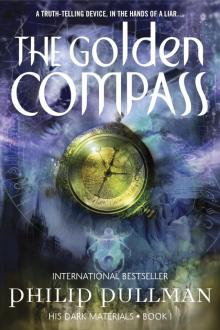 The Golden Compass
The Golden Compass The Ruby in the Smoke
The Ruby in the Smoke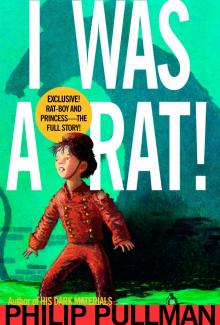 I Was a Rat!
I Was a Rat! Once Upon a Time in the North
Once Upon a Time in the North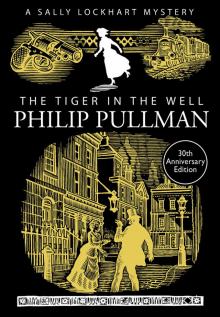 The Tiger in the Well
The Tiger in the Well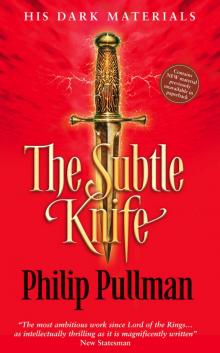 The Subtle Knife
The Subtle Knife The Butterfly Tattoo
The Butterfly Tattoo Lyra's Oxford
Lyra's Oxford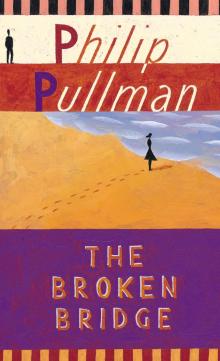 The Broken Bridge
The Broken Bridge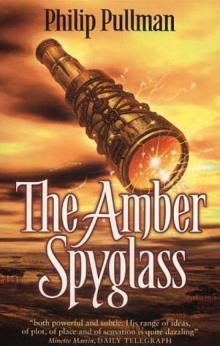 The Amber Spyglass
The Amber Spyglass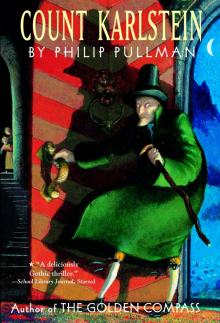 Count Karlstein
Count Karlstein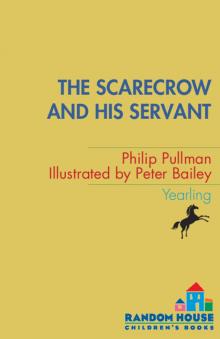 The Scarecrow and His Servant
The Scarecrow and His Servant The Shadow in the North
The Shadow in the North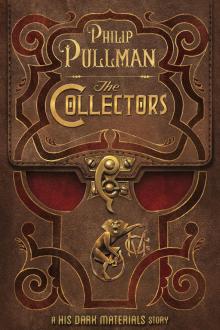 The Collectors
The Collectors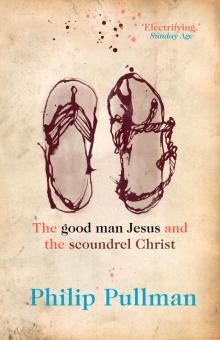 The Good Man Jesus and the Scoundrel Christ
The Good Man Jesus and the Scoundrel Christ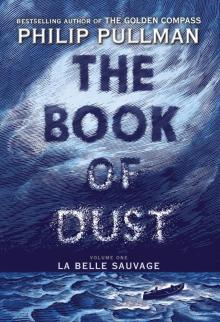 La Belle Sauvage
La Belle Sauvage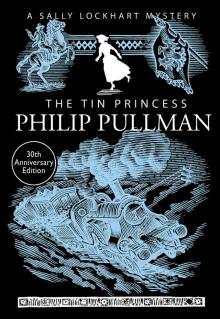 The Tin Princess
The Tin Princess The Firework-Maker's Daughter
The Firework-Maker's Daughter The Book of Dust: The Secret Commonwealth (Book of Dust, Volume 2)
The Book of Dust: The Secret Commonwealth (Book of Dust, Volume 2)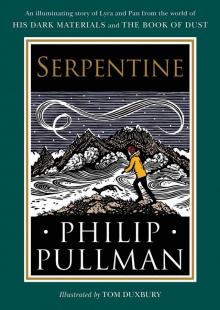 Serpentine
Serpentine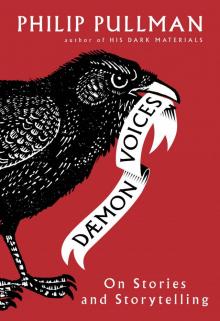 Daemon Voices
Daemon Voices The Amber Spyglass: His Dark Materials
The Amber Spyglass: His Dark Materials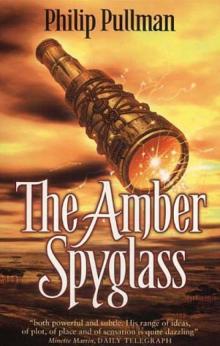 The Amber Spyglass hdm-3
The Amber Spyglass hdm-3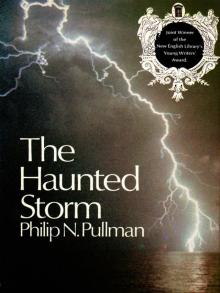 The Haunted Storm
The Haunted Storm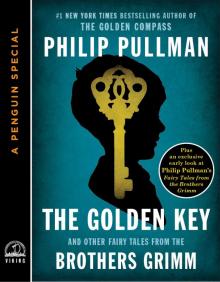 The Golden Key
The Golden Key His Dark Materials 01 - The Golden Compass
His Dark Materials 01 - The Golden Compass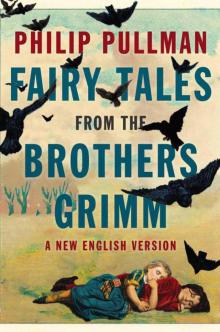 Fairy Tales from the Brothers Grimm: A New English Version
Fairy Tales from the Brothers Grimm: A New English Version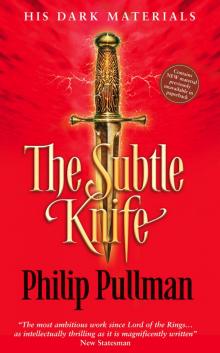 His Dark Materials 02 - The Subtle Knife
His Dark Materials 02 - The Subtle Knife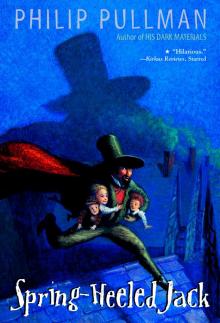 Spring-Heeled Jack
Spring-Heeled Jack The Golden Compass hdm-1
The Golden Compass hdm-1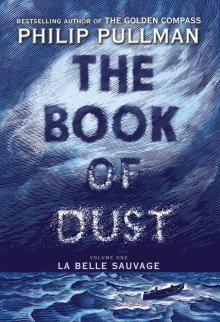 The Book of Dust, Volume 1
The Book of Dust, Volume 1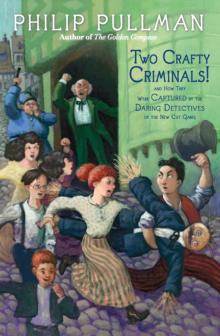 Two Crafty Criminals!
Two Crafty Criminals!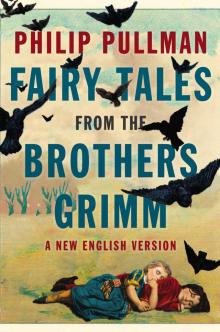 Fairy Tales from the Brothers Grimm
Fairy Tales from the Brothers Grimm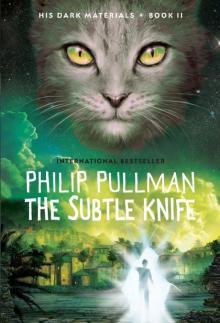 The Subtle Knife: His Dark Materials
The Subtle Knife: His Dark Materials His Dark Materials Omnibus
His Dark Materials Omnibus The Golden Compass: His Dark Materials
The Golden Compass: His Dark Materials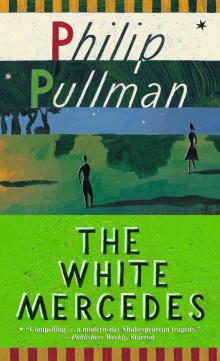 The White Mercedes
The White Mercedes